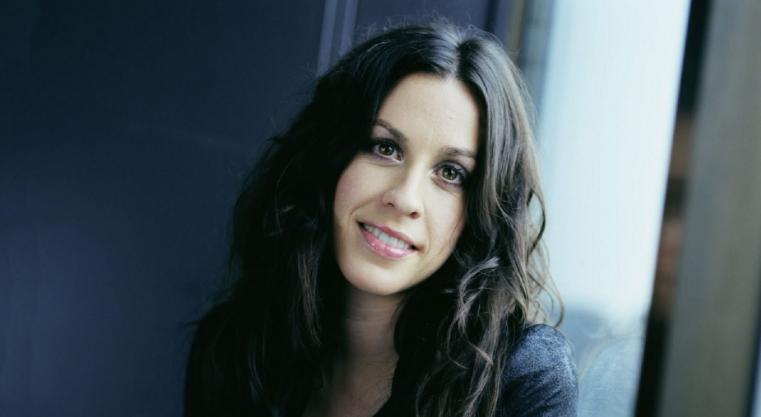Mussolini Granddaughter Playboy

The life and legacy of a political dynasty often transcend generations, and sometimes, unexpected turns of events can capture the public's attention. Such was the case when the news broke that Alessandra Mussolini, the granddaughter of the iconic and controversial Italian dictator, Benito Mussolini, had graced the pages of Playboy magazine.
A Mussolini in the Spotlight

Born into a family with a rich political heritage, Alessandra Mussolini's journey into the public eye was unique. Her grandfather, Benito Mussolini, needs no introduction as the founder of Italian fascism and the leader of Italy during World War II. However, Alessandra's path diverged significantly from her family's political legacy.
Alessandra Mussolini, born on December 1st, 1962, in Rome, Italy, was the daughter of Romano Mussolini, the fourth son of Benito Mussolini. While her family name carried immense weight in Italian politics, Alessandra chose a different path, one that would lead her into the realm of entertainment and media.
The Playboy Controversy
In the early 1990s, Alessandra Mussolini made headlines not for political endeavors but for her appearance in the Italian edition of Playboy magazine. This move was unprecedented and shocked many, considering her family's historical association with fascism and its conservative ideals.
The photoshoot showcased Alessandra's bold and unapologetic side, a stark contrast to the public image often associated with her surname. It was a statement of individualism and a break from the expectations tied to her lineage. The controversy surrounding her decision to pose for Playboy sparked intense debates in Italy, blending discussions of freedom of expression, feminism, and the complexities of living under the shadow of a famous name.
Alessandra's decision to embrace this opportunity reflected her desire to forge her own identity, separate from the political narrative her family had woven. It served as a reminder that individuals, even those born into famous families, have the right to pursue their passions and make their own choices, regardless of societal expectations.
The Impact and Aftermath
The impact of Alessandra Mussolini's Playboy appearance extended beyond the immediate shock value. It opened up conversations about gender roles, body image, and the power dynamics inherent in media representation. Many saw it as a bold statement against the constraints of tradition and a challenge to the norms that often limit women's agency.
| Year | Event |
|---|---|
| 1992 | Alessandra Mussolini's Playboy photoshoot |
| 1993 | She ventured into the world of television hosting |
| 1996 | Her career took a turn towards politics, mirroring her family's legacy |

Alessandra's Post-Playboy Life

After the buzz surrounding her Playboy photoshoot, Alessandra Mussolini's life took an intriguing turn. She ventured into the world of television hosting, appearing on various Italian talk shows and entertainment programs. Her charisma and unfiltered personality made her a popular figure on Italian screens.
However, Alessandra's journey was not confined to the entertainment industry. In a surprising twist, she decided to enter the realm of politics, much like her grandfather and other family members before her. In 1996, Alessandra Mussolini made her political debut, running for a seat in the Italian Senate. Her campaign highlighted her passion for social issues and her desire to bring about change.
A Political Career
Alessandra's political career was marked by her outspoken nature and her commitment to addressing social inequalities. She became an advocate for women's rights, advocating for policies that promoted gender equality and challenged traditional gender roles. Her experiences as a woman in the public eye informed her political stance, and she used her platform to push for progressive change.
Throughout her political journey, Alessandra faced both admiration and criticism. Her bold personality and unapologetic approach to issues divided public opinion. Some praised her for bringing fresh perspectives to Italian politics, while others questioned her methods and the extent to which her family name influenced her success.
Legacy and Impact
Alessandra Mussolini's life story is a testament to the power of individuality and the complexities of living under a famous name. Her journey from a Playboy model to a political figure showcases the diverse paths that one can take, even within the confines of a renowned family legacy. It serves as a reminder that fame and legacy do not define a person's potential or limit their choices.
Today, Alessandra Mussolini continues to make her mark on Italian society, whether through her political endeavors or her media appearances. Her story inspires discussions about the intersection of fame, family, and personal agency, leaving a lasting impact on the public consciousness.
Frequently Asked Questions
Why did Alessandra Mussolini decide to pose for Playboy?
+Alessandra’s decision to pose for Playboy was a personal choice, driven by her desire to break free from societal expectations and assert her individualism. It was a bold statement against the constraints of her family’s political legacy and a way to forge her own identity.
What impact did her Playboy appearance have on her career?
+Alessandra’s Playboy appearance brought her into the public spotlight, leading to opportunities in television hosting. It also sparked conversations about gender roles and media representation, influencing public discourse. However, it did not define her entire career path, as she later entered politics.
How did her family react to her Playboy photoshoot?
+The reaction from Alessandra’s family to her Playboy photoshoot was not made public. However, given the conservative nature of Italian politics and the family’s historical association with fascism, it is likely that her decision caused some controversy within the family.
Did Alessandra Mussolini continue her political career after her Playboy appearance?
+Yes, Alessandra’s political career began after her Playboy appearance. She entered politics in 1996, running for the Italian Senate, and has since been involved in various political parties and initiatives, focusing on social issues and women’s rights.



